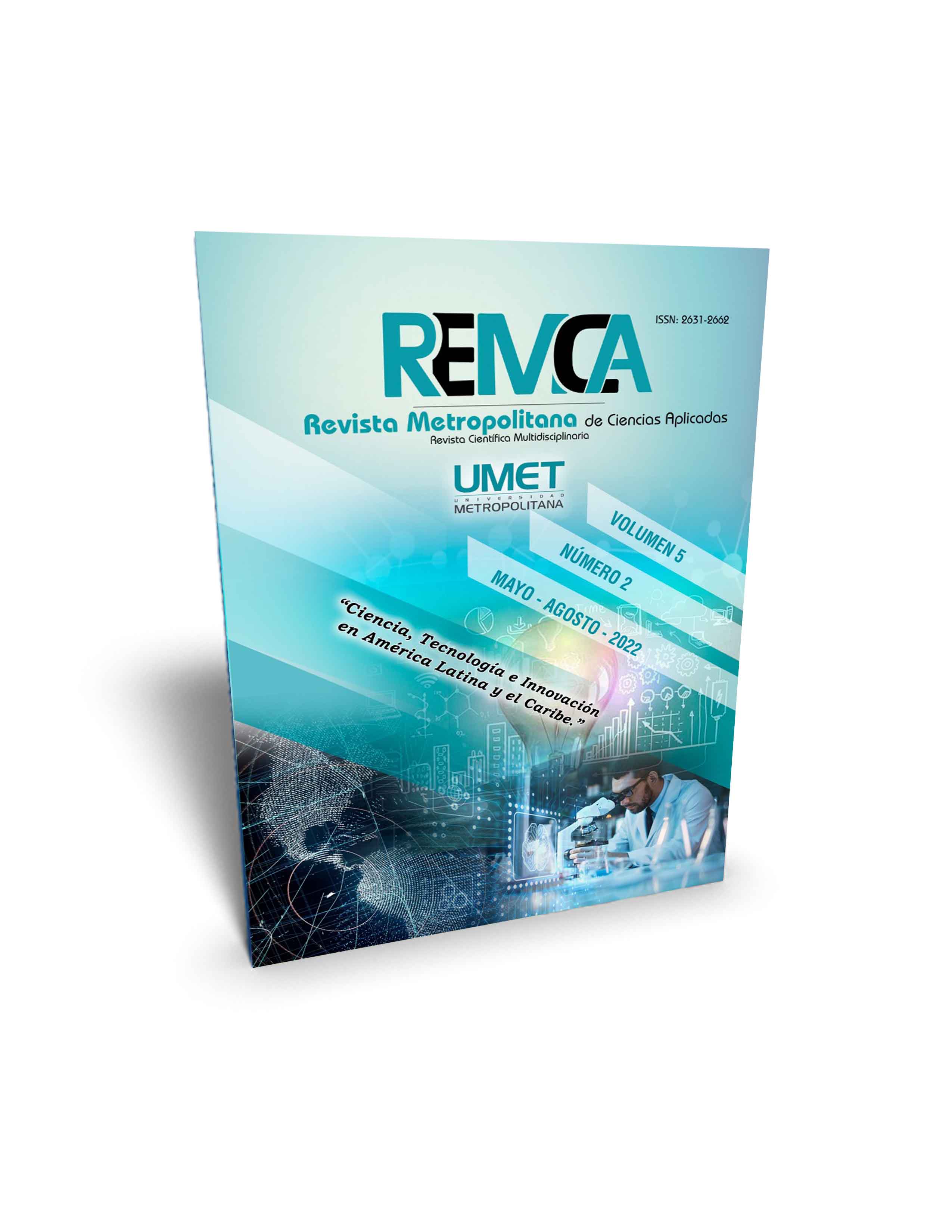Involvement of teleworking in Ecuador
DOI:
https://doi.org/10.62452/0qmp7796Keywords:
Covid -19, Information and Communication Technologies, telework, social impactAbstract
The pandemic caused by Covid-19 drastically accelerated the digitalization in personal life, as well as the social and work life of people, among these transformations, teleworking was promoted to the point that it was integrated into the laws as part of the social reactivation and economic of some states in which Ecuador is included, alleviating the serious economic crisis with the corresponding social impact that affects worldwide. Therefore, the objective of the research is to determine the implication of teleworking and its impact on labor rights related to working hours, rest, remuneration, risk prevention and reversibility, for which a qualitative methodological approach will be used and the scientific research methods will be bibliographic review, the historical - logical and the analytical - synthetic. From this study, little attention has been found on the part of the authorities in the regulation of teleworking and a growing tendency to choose said work model by people. In addition, the laws that regulate it allow only the employer to offer the option of teleworking. Therefore, it is understandable that society, especially those who are directly affected, expect improvements in the laws related to the subject.
Downloads
References
Arrieta, F. (2019). La desconexión digital y el registro de la jornada diaria en España como mecanismos para garantizar el descanso, la salud y el bienestar de los trabajadores digitales a distancia. Lan harremanak: Revista de relaciones laborales, 3(5), 105-114.
Boiarov, S. (2015). Teletrabajo: cómo empezó una breve historia. http://blog.torresdeteletrabajo.com/2012/05/teletrabajo-una-breve-historia
Ecuador. Asamblea Nacional Constituyente. (2008). Constitución de la República del Ecuador. Registro Oficial 449. https://www.oas.org/juridico/pdfs/mesicic4_ecu_const.pdf
Ecuador. Asamblea Nacional. (2020). Ley Orgánica de apoyo humanitario para combatir la crisis sanitaria derivada del COVID-19. https://www.registroficial.gob.ec/index.php/registro-oficial-web/publicaciones/suplementos/item/13070-suplemento-al-registro-oficial-no-22
Ecuador. Congreso Nacional. (2005). Código del Trabajo. https://www.emov.gob.ec/sites/default/files/transparencia_2018/a2.6.pdf
Ecuador. Ministerio de Trabajo. (2020). Resolución Nro. MDT-2020-023. http://www.cna-ecuador.com/wp-content/uploads/2020/04/RESOLUCIO%CC%81N-2020-023.pdf
González, L., Martorell, V., Balanta, H., Salazar, C., Fantini, A., & Molano, A. (2013). Teletrabajo en Iberoamérica. Colombia Digital.
Hernández, A. (2001). El teletrabajo en España en los albores del siglo XXI. Revista Universitaria de Ciencias del Trabajo, 2, 183-214.
Monesterolo, G. (2020). Sistema Regulatorio de empleos privados y obreros. Centro de Publicaciones Pontificia Universidad Católica del Ecuador.
Organización de las Naciones Unidas. (2021). La OIT insta a proteger a los teletrabajadores, a menudo "invisibles". ONU. https://news.un.org/es/story/2021/01/1486442
Organización Internacional del Trabajo. (2020). El COVID-19 y el mundo del trabajo: Repercusiones y respuestas. OIT. https://www.ilo.org/wcmsp5/groups/public/dgreports/dcomm/documents/briefingote/wcms_739158.pdf
Ortiz, E. (2007). Dependencia del trabajador. (Derecho Ecuador). https://www.derechoecuador.com/dependencia-del-trabajador
Pacheco, M. (2010). Análisis sobre la aplicabilidad del teletrabajo en la legislación laboral ecuatoriana. (Tesis Doctoral). Universidad Católica de Cuenca.
Palacios, M. (2017). El teletrabajo: hacia una regulación garantista en el Ecuador. (Tesis de maestría). Universidad Andina Simón Bolívar.
Sanchis, E. (2012) Trabajo y paro en la sociedad postindustrial. Tirant Lo Blanch.
Sierra, E. (2011). El contenido de la relación laboral en el teletrabajo. Consejo Económico y Social de Andalucía.
Troncoso, C., & Xalambrí, A. (2002). Teletrabajo. https://silo.tips/download/las-relaciones-laborales-virtuales-el-teletrabajo-amparo-beltran-puche-luis-orla
Ushakova, T. (2015). El Derecho de la OIT para el trabajo a distancia: ¿Una regulación superada o todavía aplicable? Revista Internacional y Comparada de Relaciones laborales y derecho del empleo, 3(4), 74-92.
Downloads
Published
Issue
Section
License
Copyright (c) 2022 Henry Fabián Pintado Lazo, Daniela Fernanda López Moya (Autor/a)

This work is licensed under a Creative Commons Attribution-NonCommercial-ShareAlike 4.0 International License.
Authors who publish in Revista Metropolitana de Ciencias Aplicadas (REMCA), agree to the following terms:
1. Copyright
Authors retain unrestricted copyright to their work. Authors grant the journal the right of first publication. To this end, they assign the journal non-exclusive exploitation rights (reproduction, distribution, public communication, and transformation). Authors may enter into additional agreements for the non-exclusive distribution of the version of the work published in the journal, provided that acknowledgment of its initial publication in this journal is given.
© The authors.
2. License
The articles are published in the journal under the Creative Commons Attribution-NonCommercial-ShareAlike 4.0 International License (CC BY-NC-SA 4.0). The terms can be found at: https://creativecommons.org/licenses/by-nc-sa/4.0/deed.en
This license allows:
- Sharing: Copying and redistributing the material in any medium or format.
- Adapting: Remixing, transforming, and building upon the material.
Under the following terms:
- Attribution: You must give appropriate credit, provide a link to the license, and indicate if any changes were made. You may do this in any reasonable manner, but not in any way that suggests the licensor endorses or sponsors your use.
- NonCommercial: You may not use the material for commercial purposes.
- ShareAlike: If you remix, transform, or build upon the material, you must distribute your creation under the same license as the original work.
There are no additional restrictions. You may not apply legal terms or technological measures that legally restrict others from doing anything the license permits.




